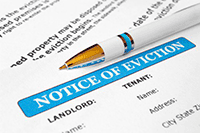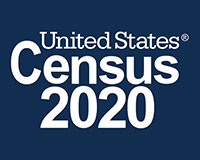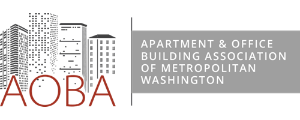Maryland At Issue - March 2020
State
AOBA Joins Organizations Across the State Opposing Sales Tax Expansion
AOBA joined more than 20 organizations opposing HB 1628, Sales-and-Use Tax, Rate Reduction and Services, at a March 2 press conference hosted by the Maryland Chamber of Commerce and the National Federation of Independent Businesses. The press conference was scheduled to precede the bill hearing, which occurred later that day in the Ways and Means Committee. During the course of the six-hour bill hearing, 119 witnesses testified in-person and shared with legislators how this bill will impact their business or industry.
 Introduced on February 20, HB 1628 would lower the sales tax from 6% to 5% but would expand that 5% sales tax to everyday services that have never been taxed before.
Introduced on February 20, HB 1628 would lower the sales tax from 6% to 5% but would expand that 5% sales tax to everyday services that have never been taxed before.
The proposed legislation repeals the current tax codes’ definitions of “taxable service.” The new definition of “taxable service” includes “any activity engaged in for a buyer for consideration.” This means that everything from auto repair service, professional accounting and legal services, electrical work, and lawn maintenance would become taxable services if HB 1628 passes.
Leaders in the House of Delegates claim that the bill could bring an estimated $2.6 billion in new revenue by 2025, and that this amount is enough to fund Kirwan Commission recommendations for education. However, the bill does not mandate that revenue generated by the new sales tax must pay for education. Delegate Luedtke told the Baltimore Sun that an average family earning $80,000 per year would pay approximately $3 more per week under the expanded sales tax. Meanwhile, Governor Hogan is quoted as saying the sales tax proposal “would destroy our economy.”
Of particular concern to AOBA members is the possibility that this bill would impose sales tax on rent. AOBA staff met with the bill sponsor, House Majority Leader Eric Luedtke, on Feb. 27. At that time, Del. Luedtke clarified that this bill would not extend a 5% sales tax to rent and that if the bill began moving through the legislative process he would clarify that point in the legislation.
Because HB 1628 was introduced after the bill introduction deadline, it was initially assigned to the Rules Committee. The bill was voted out of the Rules Committee at lightning speed to receive a bill hearing on March 2.
BREAKING NEWS: Late Wednesday, March 4, HB 1628 received an unfavorable report. It will not become Maryland law.
Legislators Take Action on Key Bills
Maryland Legislators have been diligently working on thousands of bills since Jan. 8. Now, more than halfway through the session, bills are moving through the legislative process. Here is an update on some legislation of importance to AOBA members:
HB 20: HB 20 would prohibit evictions annually between Dec. 18 and Jan. 8. The bill was heard on Jan. 28 by the Environment and Transportation Committee. On Feb. 19, HB 20 received an unfavorable report from the Housing and Real Property subcommittee and died in committee so it will not become Maryland law.
SB 530 and HB 231: The Housing Opportunities Made Equal Act would prohibit a housing provider from refusing to rent a unit to a resident because of the source of income used to pay their rent. Currently, both Montgomery and Prince George’s counties prohibit source of income discrimination in local law. Source of income discrimination is also prohibited by local law in Annapolis, Baltimore City, Baltimore County, Fredrick, and Howard County. This bill extends the prohibition statewide.
The Senate and House bills were both heard on Feb. 4, and the Judicial Proceeding Committee voted favorable on the Senate bill on Feb. 14. The complete Senate voted favorable on SB 530, 34-12, on Feb. 21. The House bill was voted favorable in the Housing and Real Property subcommittee on Feb. 26 and will receive a favorable vote by the Committee at large. AOBA staff expects the HOME Act to become law during the 2020 legislative session. AOBA members may remember there was an ongoing conversation about seeking a ‘threshold’ amendment to the bill that allows housing providers to stop accepting vouchers once 20% of units are held by a voucher holder. Unfortunately, that amendment was not well received and both bills will move forward without any threshold language.
HB 744: The Tenant Protection Act makes several changes to existing law. Broadly, the bill would require enhanced notifications (in line with Montgomery County’s current requirements) when using Ratio Utility Billing Systems; provide a tenant the right to terminate a lease due to defects; provide for early lease termination for victims of stalking; reform the security deposit process and require meeting space for tenant organizations. When testifying during the Feb. 18 bill hearing, bill sponsor Del. Stewart acknowledged that he agreed with several of the amendments AOBA mentioned in its written testimony and expressed interest in meeting with AOBA staff to amend the bill. While AOBA and Del. Stewart could not compromise on his goal of having security deposits returned in 30 days, rather than 45 days under current law, Del. Stewart did accept all AOBA’s other amendments to the bill. AOBA requested and was granted amendments to:
- Modify the information a housing provider is required to provide a tenant when returning security deposit money;
- Require that code enforcement determine if a substantial defect is present in a unit;
- Delete language that states a tenant may “terminate the lease and raise the existence of the asserted defects or conditions as an affirmative defense to an action for breach of lease or to any complaint proceeding brought by the landlord to recover rent”;
- Cap relocation expenses at “not to exceed one month of rent” on page 12 line 25;
- Clarify that housing providers are only required to give tenant organization access to existing meeting rooms.
The bill was sent to the Housing and Real Property Subcommittee which will vote on the bill in early March.
By the Numbers: A Look at the Maryland General Assembly
 With 35 days left in the Legislative Session, state lawmakers have introduced a record-topping 3,210 bills, with bill introductions continuing to trickle in. AOBA staff has analyzed more than 330 business or business regulation bills, 121 housing policy bills, 104 environment bills, 74 utility bills, 68 public facilities bills, 57 property tax bills, 2 electric vehicle bills, 1 bill that would require property management licenses for small property managers and many more bills. Of the hundreds of bills reviewed, staff brought nearly 50 bills to the Government Affairs Committee and 55 bills to the AOBA utility team for a position. To date, AOBA has provided formal testimony on approximately 30 bills and met privately with dozens of legislators to amend, support or oppose legislation. Thus far, the longest bill hearing staff has participated in was seven hours—from 1:00 p.m. until after 8:00.
With 35 days left in the Legislative Session, state lawmakers have introduced a record-topping 3,210 bills, with bill introductions continuing to trickle in. AOBA staff has analyzed more than 330 business or business regulation bills, 121 housing policy bills, 104 environment bills, 74 utility bills, 68 public facilities bills, 57 property tax bills, 2 electric vehicle bills, 1 bill that would require property management licenses for small property managers and many more bills. Of the hundreds of bills reviewed, staff brought nearly 50 bills to the Government Affairs Committee and 55 bills to the AOBA utility team for a position. To date, AOBA has provided formal testimony on approximately 30 bills and met privately with dozens of legislators to amend, support or oppose legislation. Thus far, the longest bill hearing staff has participated in was seven hours—from 1:00 p.m. until after 8:00.
Prince George's County
Eviction Processing Gridlock in District Court
 Members are well aware that the evictions process in Prince George’s County has been unusually slow for much of 2020. AOBA staff has checked with the District Court multiple times regarding this issue, most recently on March 3, and with the Sheriff’s office in February. The Court’s online system of record, File and Serve, experienced a complete site crash on Feb. 1 and was offline for over a week. Since Feb. 12, File and Serve has been experiencing periodic shutdowns resulting in exceptional delays in writ processing. The District Court has authorized overtime and has detailed additional clerks to process writs to address the backlog once the system is fully functioning. The District Court Administrator has been in constant communication with File and Serve and the technical experts will be on-site, at the District Courthouse on March 5. AOBA will continue to monitor the situation and update members accordingly.
Members are well aware that the evictions process in Prince George’s County has been unusually slow for much of 2020. AOBA staff has checked with the District Court multiple times regarding this issue, most recently on March 3, and with the Sheriff’s office in February. The Court’s online system of record, File and Serve, experienced a complete site crash on Feb. 1 and was offline for over a week. Since Feb. 12, File and Serve has been experiencing periodic shutdowns resulting in exceptional delays in writ processing. The District Court has authorized overtime and has detailed additional clerks to process writs to address the backlog once the system is fully functioning. The District Court Administrator has been in constant communication with File and Serve and the technical experts will be on-site, at the District Courthouse on March 5. AOBA will continue to monitor the situation and update members accordingly.
Prince George’s County Councilmember Solicits AOBA Help with Census 2020
 County Executive Alsobrooks, Councilmember Deni Taveras and her colleagues on the County Council are particularly concerned with ensuring the County is accurately counted in the 2020 Census. To that end, County leadership has asked AOBA members to partner with the Council in getting the word out to their communities about the importance of this year’s Census. As this is also a key initiative of the National Apartment Association, staff indicated that we would be happy to encourage housing providers to assist with the effort.
County Executive Alsobrooks, Councilmember Deni Taveras and her colleagues on the County Council are particularly concerned with ensuring the County is accurately counted in the 2020 Census. To that end, County leadership has asked AOBA members to partner with the Council in getting the word out to their communities about the importance of this year’s Census. As this is also a key initiative of the National Apartment Association, staff indicated that we would be happy to encourage housing providers to assist with the effort.
The County will provide AOBA staff with a toolkit of materials to promote and emphasize the importance of the Census and how residents may participate in the Census. Please contact Erin Bradley for materials and promote the census widely on your properties. The Council has also produced a high quality video that members can play on-site in common areas. It’s that simple! Our participation will go a long way in impacting how federal money is allocated to the County and will demonstrate AOBA members’ on-going support of County goals.
MEMBER ACTION: Please contact Erin Bradley if you are interested in participating in this effort. Erin will provide you a digital copy of the materials for printing and distribution.
